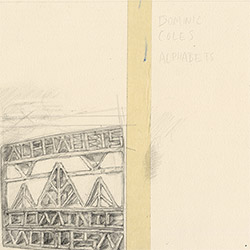
A study of language through the repetition of fragmented sound, demonstrating how repetition brings alienation of meaning, Cole creating a synthetic alphabet within an unsignified musical context of electronic responses, repeated until the listener loses contact or reference to the original word; a challenging series of transformations rewarding to the engaged listener.
In Stock
Quantity in Basket: None
Log In to use our Wish List
Shipping Weight: 3.00 units
EU & UK Customers:
Discogs.com can handle your VAT payments
So please order through Discogs
Sample The Album:
Dominic Coles-composer
Joseph Kreitem-performer
Click an artist name above to see in-stock items for that artist.
Label: Tripticks Tapes
Catalog ID: TTT036
Squidco Product Code: 33349
Format: CD
Condition: New
Released: 2023
Country: USA
Packaging: Cardboard Gatefold
Recorded by Joseph Kreitem.
"Dominic Coles' introduction of the possibility of tedium-work-to the listening act is laudable in its own right. We are daily barraged with a passive tedium, whether in the form of the job, the endless logistics of life and sustenance, or-to put a finer point on it-a bottomless flood-tide of art that seeks to reduce to an absolute minimum the friction between listener and sound, to invisibilize rather than surface the many mediating layers and obstacles between the listening apparatus and the bare wave. Any semblance of "difficulty" or "ease" is all too easily shifted onto the surface of the sound-materials themselves: the friction, or lack thereof, is granted merely formal life in its inevitable sorting and categorization into a discrete, legible genre-bucket.
It is wonderful, then, that this collection of studies, or lessons, is shot through with a humor and lightness that makes the work strangely inviting-addictive-even in its weight. This dynamic manifests through several layers of slippage, disjunction, contradiction: between pre-written text and sometimes sloppily spoken, trailing-off recording; between a seemingly total abstraction and almost pithy moments of aural representation (buzzing insects here, a muted trumpet there); between text and synthesis, which at times seem to trigger one another, at others to be meandering in complete opposing directions. In surfacing, rather than tucking away, these slippages, the work finds a fulcrum, a piston movement, that not only pushes us easily from one module to the next, but also shines a light on the odd artificiality of the listening act itself and its stubborn inextricability from the world as such. The work leaks-but this preserves, heightens, rather than severs, its fundamental rootedness.
In being organically drawn into this pedagogical process-and this is a natural invitation made welcoming through a laser-focus paid to the qualities and interactions of the materials at hand, not simply by decree-we are then drawn into a game of pattern recognition, a tracing or mapping of memory and its processes, with real stakes. The moments where it all comes together-where the once strange interlinked patterns and gestures become familiar, even catchy-precede moments where everything falls apart and meaning dissipates. In the process, we are made active, forging a new, unheard language that is composed of fragments of the old, the familiar. This newness is wholly private, as is our own attendant transformation; is there even a way to express the substance of this transformation to others? But the joy and intensity of the work has vanished in the result. And the world begins to hum-tremble-with the newfound possibility of change.
-Sunik Kim "-Sunik Kim
"alphabets
*Interpretation does not so much aim at revealing meaning as at reducing signifiers to their non-meaning (lack of meaning) so as to find the determinants of the whole subject's behavior.
*Mum's the word.
I would play a game as a child: repeat any word over and over and listen as it gradually loses its meaning in the mouth. It would become strange with each repetition, changing into something clunky and foreign.
Our language, and our voices as conduits for this language, has something alien about it. Think of the infinite awkwardness on hearing a recording of your own voice! Or take those slips of tongue that make clear we don't know the actual subject of our speech. And isn't it strange that when our words do clarify, they seem to only do so in the mouth of another - when someone repeats something we've said back to us? Our language is always expressed at a distance: the words in our mouths and in our minds are in fact alien; they are not our own.
This is because we are born into a pre-fabricated world of discourse, into our parents' and caretakers' linguistic universe. We have a room, a name, a space in their language formed in advance of our birth. This language is placed in us, and insofar as language brings with it its favorite bedfellow - desire - it is also their desire that is placed in us.
alphabetic listening makes this alienation in language material. It starts didactically: each word, taken from a fragment of a recounted dream, is associated with an abstract synthetic sound. An alphabet is developed in this electronic sound, and through repetition the association between word and synthetic sound is reinforced so that the listener can continue the association once the voice has been removed. The synthetic sounds become new signifiers, but ones that are immediately distanced and estranged from the signified. two studies in alphabetic listening were early attempts at activating this process, of conjuring a newly signified voice in the mind of the auditor.
alphabet 1: p-u-s-h takes its own synthetic alphabet and places it within a musical context, putting these speech associated sounds in contact with unsignified musical sounds (ones not known to be associated with a voice). The musical sounds become a form of interference or signal jamming; the listener loses contact with the original word. While the synthetic alphabet is still easily tied to the voice it becomes nearly impossible to locate the content of the original word: it instead enunciates a lost, meaningless speech.
It is in the power of the auditor to put this lost language, mediated through the content of the recollected dream fragment and the listening context, to work. The auditor can interject with their own tongue, their own language and associations in the place where meaning has been lost. When language is fixed it becomes a cage: it determines our movements within it and our ideas about what is possible - what can be. To work upon the signifier and the signified itself is to transform this cage, to understand that no thing in the world is fixed but radically alterable and subject to transformation. To this end, the listener too, their very subject, is altered in their audition: as they are interpolated into the piece the transformation of a word, of signification, posits the transformation of that very interpolated listener.
But to actualize this transformation - it requires work. In this regard, I want to stress the significant labor needed on the part of the listener to work upon the signifier. A real effort is required in order to hear each word as newly signified. It is a demanding, difficult, and at times tedious process. But then, isn't that true of all our work on the self?"-Dominic Coles
Artist Biographies
• Show Bio for Dominic Coles Dominic Coles is a New York City electronics artist, know for his work with Weston Olencki & Michelle Lou; the trio Dominic Coles :: Kifferstein/Olencki :: Jenn Grossman; and the duo Other Plastics with Hunter Brown. ^ Hide Bio for Dominic Coles
Have a better biography or biography source? Please Contact Us so that we can update this biography.
Track Listing:
1. alphabet 1: p-u-s-h 53:01
2. I'm in this big, open field... 14:40
3. My family has moved into this old, palatial ruin 11:45
Electro-Acoustic
Organized Sound and Sample Based Music
Electronic Forms
Unusual Vocal Forms
Duo Recordings
New in Experimental & Electronic Music
Search for other titles on the label:
Tripticks Tapes.


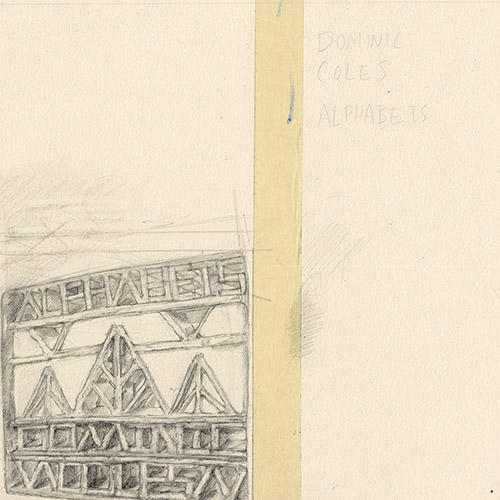



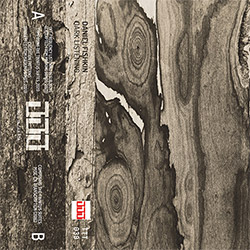
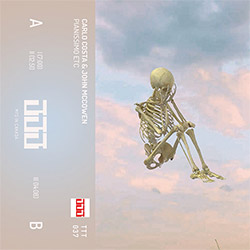
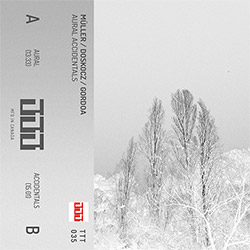

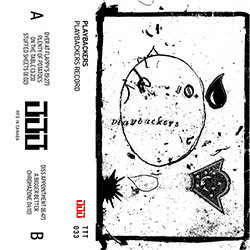
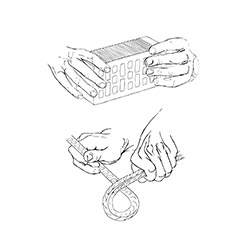
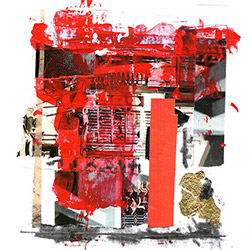
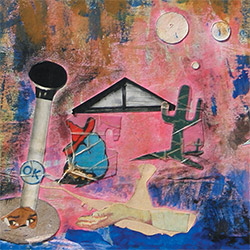
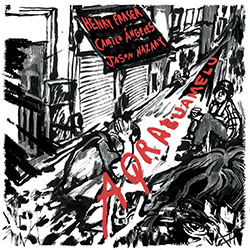
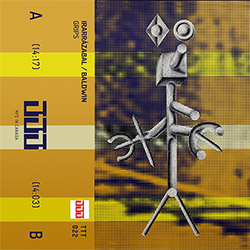
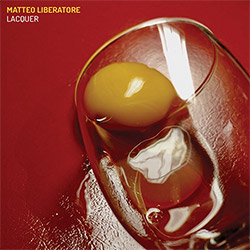


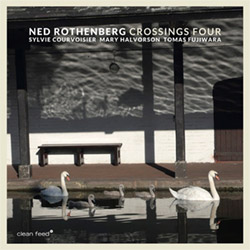
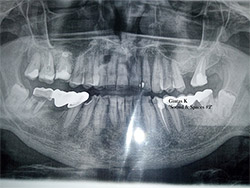


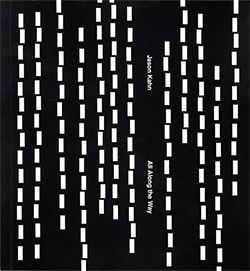
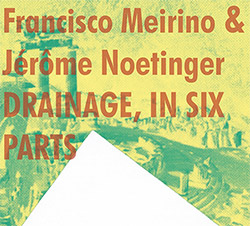

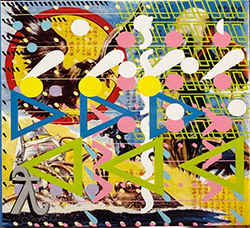









![Parker, Evan / Andrea Centazzo: Bullfighting On Ice! Live In Padova 1977 [VINYL]](https://www.teuthida.com/productImages/misc4/37064.jpg)
![Curran, Alvin / Andrea Centazzo / Evan Parker: Real Time [VINYL]](https://www.teuthida.com/productImages/misc4/37065.jpg)
![Curran, Alvin / Andrea Centazzo / Evan Parker: Real Time Two [VINYL]](https://www.teuthida.com/productImages/misc4/37066.jpg)

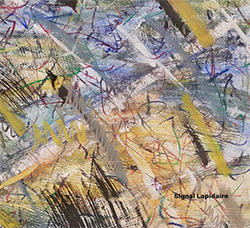

![Rodrigues, Ernesto / Jung-Jae Kim / Guilherme Rodrigues / Eric Bauer / Stephen Flinn: 5 In The Afternoon [2CDs]](https://www.teuthida.com/productImages/misc4/36957.jpg)

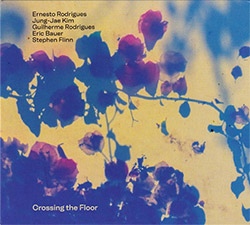





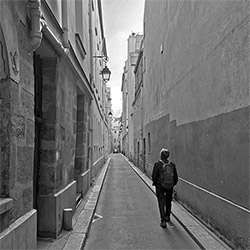
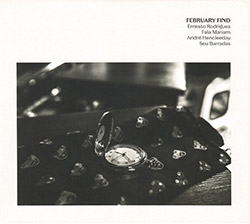




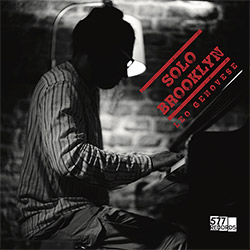
![Coley, Byron / Mats Gustafsson / Thurston Moore: Now Jazz Now: 100 Essential Free Jazz & Improvisation Recordings (1960-80) [BOOK]](https://www.teuthida.com/productImages/misc4/36932.jpg)
![Evans, Peter / Being & Becoming: Ars Ludricra [VINYL + DOWNLOAD]](https://www.teuthida.com/productImages/misc4/37026.jpg)
![HobbyHouse (Mia Dyberg / Axel Filip): HobbyHouse [CD + DOWNLOAD]](https://www.teuthida.com/productImages/misc4/36944.jpg)
![Mines, Kelsey / Erin Rogers: Scratching At The Surface [CD + DOWNLOAD]](https://www.teuthida.com/productImages/misc4/36945.jpg)
![Nebbia, Camila (feat/ Marilyn Crispell / Lesley Mok): A Reflection Distorts Over Water [CD + DOWNLOAD]](https://www.teuthida.com/productImages/misc4/36946.jpg)
![Vanheerentals, Adia: Taking Place [CD + DOWNLOAD]](https://www.teuthida.com/productImages/misc4/36947.jpg)
![Mines, Kelsey / Vinny Golia: Collusion and Collaboration [CD + DOWNLOAD]](https://www.teuthida.com/productImages/misc4/36948.jpg)
![Parkins, Zeena: Lament For The Maker [CD + DOWNLOAD]](https://www.teuthida.com/productImages/misc4/36949.jpg)
![Evans, Peter / Mike Pride : A Window, Basically [CD + DOWNLOAD]](https://www.teuthida.com/productImages/misc4/36950.jpg)
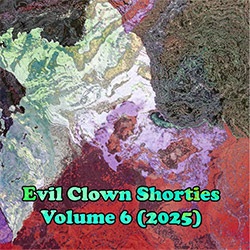
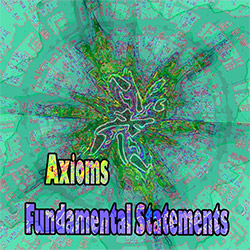




![Agnel, Sophie: Learning [VINYL]](https://www.teuthida.com/productImages/misc4/36841.jpg)
![Monaco, Amanda (w/ Michael Attias / Sean Conly / Satoshi Takeishi) : Deathblow [VINYL+ DOWNLOAD]](https://www.teuthida.com/productImages/misc4/36956.jpg)
![Belorukov, Ilia / Alex Riva: Wrestling For Futility [CASSETTE w/DOWNLOAD]](https://www.teuthida.com/productImages/misc4/36994.jpg)


![Genthon, Anouck / Lionel Marchetti: Suite Blanche [2 CDs]](https://www.teuthida.com/productImages/misc4/36642.jpg)
![Toeplitz, Kasper T.: Erosions Programmees [CD + BOOKLET]](https://www.teuthida.com/productImages/misc4/36639.jpg)
![Gate, The : Almost Live [CASSETTE + MAGAZINE]](https://www.teuthida.com/productImages/misc4/36836.jpg)






![A Magic Whistle: The Solar Cell [VINYL]](https://www.teuthida.com/productImages/misc4/36658.jpg)

![McGee, Hal: Columbus Expedition [Cassette w/ Download]](https://www.teuthida.com/productImages/misc4/36650.jpg)


![Jaeger, Kassel: Fernweh [VINYL 2 LPs]](https://www.teuthida.com/productImages/misc4/36541.jpg)





![+DOG+: The Light Of Our Lives [2 CDs]](https://www.teuthida.com/productImages/misc4/36009.jpg)


![Frey, Jurg : Composer, Alone [3 CDs]](https://www.teuthida.com/productImages/misc4/36927.jpg)








![Frey, Jurg with ensemble]h[iatus: Je Laisse A La Nuit Son Poids D](https://www.teuthida.com/productImages/misc4/36988.jpg)




![Pisaro-Liu, Michael: Within (2) / Appearance (2) [2 CDs]](https://www.teuthida.com/productImages/misc4/36831.jpg)










![Musicworks Magazine: #151 Summer 25 [MAGAZINE + CD]](https://www.teuthida.com/productImages/misc4/36559.jpg)

![Brown, Dan / Dan Reynolds: Live At The Grange Hall [unauthorized][CASSETTE]](https://www.teuthida.com/productImages/misc4/36245.jpg)



![Zorn, John: The Song of Songs [CD + CD BOOK]](https://www.teuthida.com/productImages/misc4/36923.jpg)

![Coultrain: Mundus [COLORED VINYL]](https://www.teuthida.com/productImages/misc4/33056.jpg)
![Hprizm: Signs Remixed [COLORED VINYL]](https://www.teuthida.com/productImages/misc4/30635.jpg)
![Halls Of the Machine: All Tribal Dignitaries [CASSETTE w/ DOWNLOAD]](https://www.teuthida.com/productImages/misc4/36134.jpg)



![Koenjihyakkei: Live at Club Goodman [2 CDs]](https://www.teuthida.com/productImages/misc4/36111.jpg)

![Sorry For Laughing (G. Whitlow / M. Bates / Dave-Id / E. Ka-Spel): Rain Flowers [2 CDS]](https://www.teuthida.com/productImages/misc4/35985.jpg)

![Rolando, Tommaso / Andy Moor : Biscotti [CASSETTE w/ DOWNLOADS]](https://www.teuthida.com/productImages/misc4/36106.jpg)


![Electric Bird Noise / Derek Roddy: 8-10-22 [CD EP]](https://www.teuthida.com/productImages/misc4/35970.jpg)








![Elephant9 : Mythical River [VINYL]](https://www.teuthida.com/productImages/misc4/34624.jpg)



![Elephant9 with Terje Rypdal: Catching Fire [VINYL 2 LPs]](https://www.teuthida.com/productImages/misc4/35355.jpg)
![Coley, Byron: Dating Tips for Touring Bands [VINYL]](https://www.teuthida.com/productImages/misc4/17906.jpg)

![Lost Kisses: My Life is Sad & Funny [DVD]](https://www.teuthida.com/productImages/misc4/lostKissesDVD.jpg)